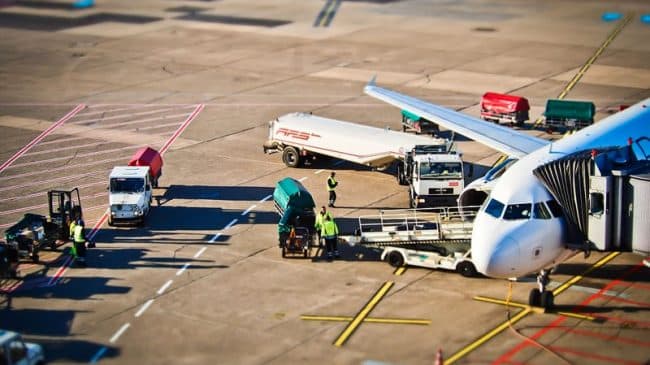Federal lawmakers appear to be in quite a rush these days to be seen as “doing something” to combat terrorism. Does it matter to them if that something turns out to be rather foolish?
I’m referring to legislation that would give us a government-run passenger-screening process at airports nationwide. The Senate has already passed it, and it’s being debated in the House of Representatives.
At first glance, this approach may seem appealing. It’s clear security at many U.S. airports was woefully insufficient to forestall a terrorist attack before Sept. 11, and that, even now, more must be done to restore the public confidence in the safety of domestic air travel. So why not resort to a federalized system that would at least have the benefit of being uniform? There are several reasons we shouldn’t:
(1) We need a system that safeguards an entire airport. The Senate’s plan to “federalize” passenger screening operations would do nothing about controlling access to the rest of the airport for the thousands of caterers, cleaners, refuelers and others who lack mandatory background checks or secure ID cards. Federal investigators have been able to breach security and gain access to the tarmac on one out of every three tries, yet these flaws are ignored by the Senate’s proposal.
(2) America needs a system that is flexible. When lives depend on security, it is essential to be able to discipline and/or fire staffers who are incompetent or untrustworthy. But this is very hard to do if the staffers in question are federal civil servants. And since new technology may soon make it possible to let machines handle much of the boring job of bag inspection, flexibility will be needed to reassign or retire people whose jobs are eliminated by that technology. But that too is difficult to do in a federal civil-service bureaucracy.
(3) Policymakers need to take account of the fact that passenger airports vary enormously in size and design. Some have a central terminal, others have unit terminals. Some have hotels and parking structures integrated into the terminal, others do not. Some have extensive international service, others are exclusively domestic. A “one size fits all” solution mandated from the top down is likely to be a poor fit at many airports.
(4) Policymakers should admit that nobody yet has “the answer” for implementing more effective and affordable airport security. All sorts of solutions are possible, from better X-ray machines, to sophisticated profiling of high-risk people, to biometric ID cards for employees and frequent fliers — and no one is sure yet how much they will cost or how effective they will be.
That’s why a regime of tough federal outcome standards makes better sense.
It would permit a healthy degree of experimentation by the nation’s several hundred major airports to find out what really does work best.
It turns out this kind of system already exists in European countries and Israel. These countries have a 20-year head start in dealing with serious terrorist threats. Many tried the top-down, “federalized” approach. (In fact, 20 years ago, many European airports were run by national governments.) But as part of an effort to modernize airport management, governments in Western Europe have created self-supporting airport corporations that work very effectively.
Many of these airport corporations — including those in Belfast, Copenhagen, Frankfurt, London, Rome and Vienna — have been privatized.
Others, such as airports in Manchester and Paris, are government-owned but operate on a for-profit basis. In every case, when it comes to security, it is the airport’s responsibility to meet performance requirements set by the government — but the means for doing so are up to each airport operator.
Some of the airport companies, such as BAA, which runs London’s Heathrow and Gatwick, employ all passenger-screening staff themselves. Most hire private security firms to do much of the work, especially passenger screening. But because the airport owners are held accountable for security by their national aviation safety authorities, they insist on high levels of training and reasonable pay and benefits for the people employed by the security firms.
Yes, we do need to “do something” about airport security, but it would be a mistake to have the federal government take over passenger screening.
Washington does have a role to play: It should become a much tougher aviation-security regulator. And it should learn from Europe and Israel, both of which have more experience with terrorism.
Robert W. Poole, Jr. directs the Transportation Studies Program at the Reason Foundation. He advised the White House Domestic Policy Council and several members of Congress on ways to improve airport security following the 9/11 terrorist attacks.

